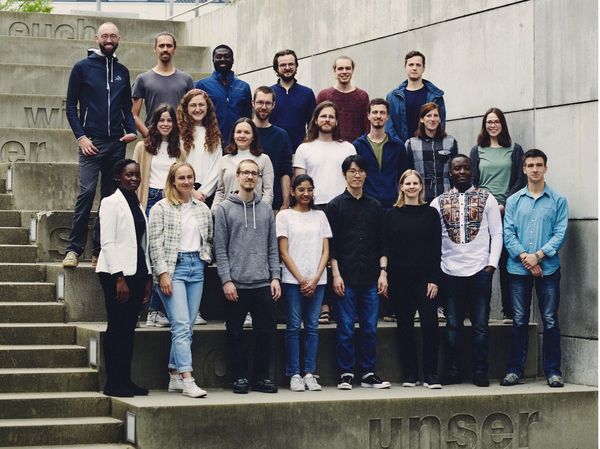In the Department of Data Science we generate knowledge from data to advance neuroscience and ophthalmology.
About the Department of Data Science
We analyze large and complex data sets in neuroscience and ophthalmology to advance our understanding of the healthy eye and brain and how they are affected by degenerative diseases. To this end, we pursue a data science approach, using machine learning, mechanistic modeling and visualization to generate knowledge from data. We believe that data holds the key to answering many questions about how the healthy eye and brain works and how diseases impact its function, how they can be detected early and how their time course can be predicted. We are the interface that brings together data with domain knowledge and the most suitable algorithm to distill insight into scientific or clinical questions.

With our clinical partners in the Departement of Ophthalmology, we develop interpretable algorithms for improving clinical decision-making, detecting degenerative diseases of the eye or the brain early and modeling their time course. We analyze fundus images as well as optical coherence tomography (OCT) data, and focus on major causes of vision impairment such as diabetic retinopathy and age-related macular degeneration. We focus on algorithms that enable clinicians to do their work more effectively or that further our understanding of the disease.
In basic research, we work in close collaboration with our experimental partners to integrate diverse data sources such as electrophysiological and functional recordings, single cell transcriptomics and high-resolution anatomical data to link the computations performed by individual cell types to their genetics and anatomy and we strive to understand how these neural computations are affected in degenerative diseases. To this end, we develop novel techniques for visual exploration of high-dimensional data and work on new hybrid models incorporating mechanistic and statistical components.
We are part of the Cluster of Excellence "Machine Learning - New Perspectives for Science" funded in the Excellence Initiative and the BMBF Competence Center for Machine Learning Tübingen AI Center. Our international partners include the African Institute for Mathematical Sciences.
Prof. Dr. Philipp Berens
 Prof. Dr. Philipp Berens is Full Professor of Data Science at the University of Tübingen and Director of the Hertie Institute for AI in Brain Health. Also, he is Speaker of the Excellence Cluster “Machine Learning – New Perspectives for Science” and is part of the core faculty of the Tübingen AI Center. His goal is to use machine learning to enable discoveries in basic and clinical neuroscience, with a focus on ophthalmology. He is interested in developing new algorithms whose output can be integrated into scientific or clinical workflows. His work has been recognized with a DFG Heisenberg Professorship, an ERC Starting Grant and the Bernstein Award of the German Ministry for Science and Education.
Prof. Dr. Philipp Berens is Full Professor of Data Science at the University of Tübingen and Director of the Hertie Institute for AI in Brain Health. Also, he is Speaker of the Excellence Cluster “Machine Learning – New Perspectives for Science” and is part of the core faculty of the Tübingen AI Center. His goal is to use machine learning to enable discoveries in basic and clinical neuroscience, with a focus on ophthalmology. He is interested in developing new algorithms whose output can be integrated into scientific or clinical workflows. His work has been recognized with a DFG Heisenberg Professorship, an ERC Starting Grant and the Bernstein Award of the German Ministry for Science and Education.